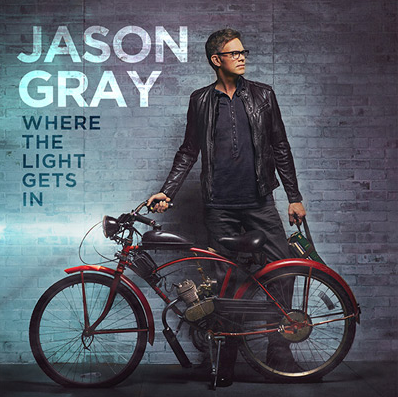 First a confession: U2
First a confession: U2 and Bono
have been on my mind because I just finished writing a book about them–namely, their music’s connection to C. S. Lewis’s
idea of Joy. (And I will get my promo out of the way now: it’s called “Shadowlands and Songs of Light: An Epic Journey into Joy and Healing.” It explores 18 C. S. Lewis books and 13 U2 albums to answer one question: how do we actually experience–not just talk about—the joy we have in Christ when all of our circuits have shorted and we’re neck-deep in sorrow and brokenness? The book, endorsed by Randy Phillips of Phillips, Craig & Dean, comes out Oct. 1 from BroadStreet Publishing. More info here.)
Bono has also been on my mind because he recently said this about the Christian music industry in a conversation with Eugene Peterson, the translator of The Message:
By Web Summit – https://www.flickr.com/photos/websummit/15593861939/, CC BY 2.0, https://commons.wikimedia.org/w/index.php?curid=41811568
“I find a lot, in Christian art, a lot of dishonesty,” Bono says. “I think it is a shame because these are people who are vulnerable to God in a good way. I would love if this conversation would inspire people who are writing these beautiful voices and these beautiful gospel songs, write a song about their bad marriage, write a song about how they are pissed off at the government, because that is what God wants from you — the truth. That truthfulness, that truth will set you free and blow things apart…Why I am suspicious of Christians is because of this lack of realism and I would like to see more of that in art, in life and in music,” Bono adds.

I’d like to make the case here that Jason Gray’s new album, Where the Light Gets In
, delivers one of the most honest yet hopeful albums I’ve ever heard, and, I suspect, if Bono got a hold of it, he would feel some real joy to see Christians creating art that is both honest and masterfully done. (And we know that Bono listens to Christian music. One example: in his speech he gave to the CCM industry at the Dove Awards many years ago in 2004, he introduced via video the band Jars of Clay, and he told the audience that he had been listening to one of the most obscure cuts–“Jesus Blood Never Failed Me Yet”–from Jars of Clay’s album “Who We Are Instead” for the past year. I would guess that most avid Christian music fans at the time didn’t know that obscure track by name, yet Bono knew it by heart.)
In fact, Bono suggests Christians write songs about “bad marriages.” Well–and I’m going to go out on a limb here–Jason Gray has written possibly the most powerful, well-crafted, honest song about divorce/relationship-based grief I’ve heard in the last 20 years, whether Christian or secular. The song is called “Death Without a Funeral.” It really is one of the best songs on divorce/estrangement that I’ve come across. (And I include estrangement because this song could apply to any relationship, really, from which you are cut off indefinitely, if not permanently, while both parties remain alive.)
Reason #1: the lyric comes at the topic from a unique angle. It would make a fitting poem in a book of serious contemporary literature. I love, for example, that the song never once mentions “divorce” or “break-up,” yet you see, in the words, the life-bending weight of both as vividly as a feature length film.
Reason #2: the music presides calmly over the lyrics. This creates a marked contrast. There is no forced emotions and super-melodramatic turns of performance or production that so many songs, both Christian and secular, cannot resist when dealing with such painful topics. (And, to be sure, in some songs it is the right move to go in that direction.) But the music speaks with a voice of someone who has passed through the valley of the shadow of death and now stands quietly looking back as he relearns how to breathe. The chord progression aches and bends and crumples under the weight of invisible sorrow as it should, but it moves through the song with an almost unnerving calmness. Or perhaps it’s the unspeakable grief that causes someone to simply stand speechless and stare.
Whatever it is, “Death Without A Funeral” is a masterpiece, and, as a whole, “Where The Light Gets In” is a marvelous work. And, I should clarify, it is actually a joyful, hopeful album, but it is also effectively (and affectingly) honest–as Bono requested from Christian songwriters.
Songs like the catchy “Learning,” the first single “Sparrow,” “Resurrection,” “I Will Rise Again,” “Glow In The Dark,” and “Celebrate” show us joy and hope in Christ that is plausible, honest and infectious in a natural way (i.e. you don’t feel like someone is trying to force you to smile until your face hurts as sometimes happens with Christian music).
“Stolen” just makes me want to fall in love with God all over again, and it does so in an authentic, non-plastic way. It doesn’t even use that phrase (“fall in love with God”). In fact, the word “God” is not even mentioned, but it doesn’t need to be. The lyrics make the meaning plain, and I walk away from the song every time with a longing for God that’s been stirred and reawakened.
And then the quieter songwriting brilliance we see in “Death Without A Funeral” continues with other mellower tracks like “The Wound Is Where The Light Gets In,” which is probably one of my favorite tracks on the album. It features a haunting, steady-picking chord progression and melody that reminds me of some of the best work from Jakob Dylan’s “Women and Country” (and I mean that as a massive compliment); and the song also has a memorable duet with Dan Haseltine of Jars of Clay. (Speaking of Jars of Clay and U2: Hey Dan, could you pass “Death Without A Funeral” to Bono for me? Just tell him, “Alright, you had a good point, but listen to this song.”)
Another fantastic moment (among many) on the album: “Thank You For Everything,” the closing track of the album. It has such a contagious childlike sincerity to it. But it’s the kind of sincerity that isn’t bred in comfortable circumstances and full of easy platitudes that flow without cost from a life that’s never been broken. You can tell there’s some real brokenness in it. You can tell there are a few rivers of tears behind those thank-yous.
In fact, in my interview with Jason Gray, which will be posted here at RockinGodsHouse.com in a few days as a follow-up to this article, he said that “Thank You For Everything” is the only song he’s written that makes him cry. The reason behind that is powerful and evident, as you will see when you read the full interview. (If you’d like to receive an email alert when the interview is live, sign up for the Rocking God’s House email list here.)
All in all, I am grateful that Jason Gray is releasing this album now. It gives the Christian community a quick response to those who long, as Bono does, for Christians to create art that is just as powerful, honest, and affecting as any other artist’s work in the world. In fact, speaking of the Christian community, Andrew Peterson, another great artist like Jason Gray, had a thoughtful response to Bono, and his tweet makes a good point: “I get where Bono is coming from, but the fact is, there’s TONS of honest Christian art. It just isn’t mainstream.”
There is indeed tons of honest Christian art. And Jason Gray just added a beautiful addition to it.
Check out Jason Gray’s new album and official website here. Also connect with him on Twitter, @jasongraymusic, or on YouTube.




Trackbacks/Pingbacks